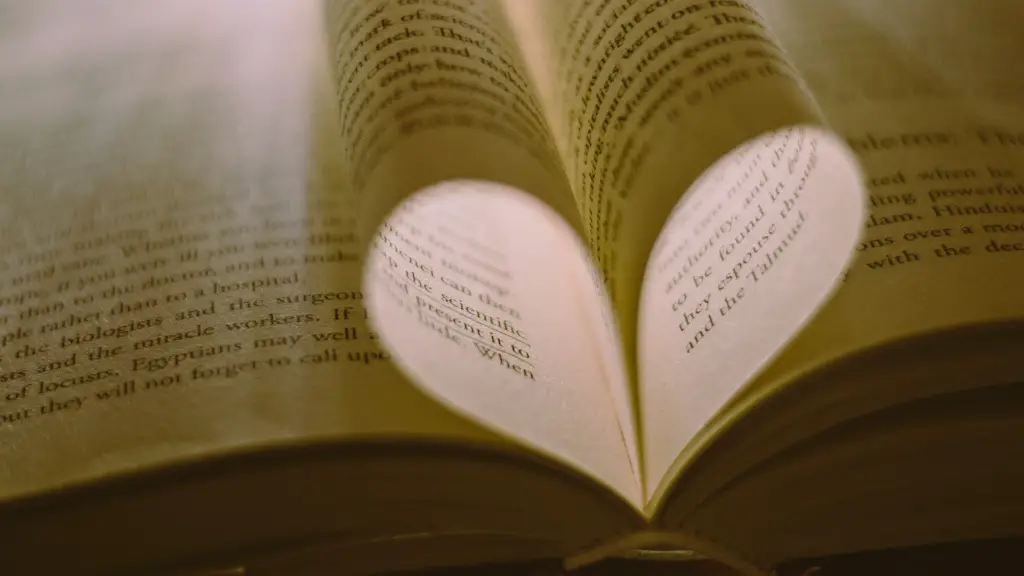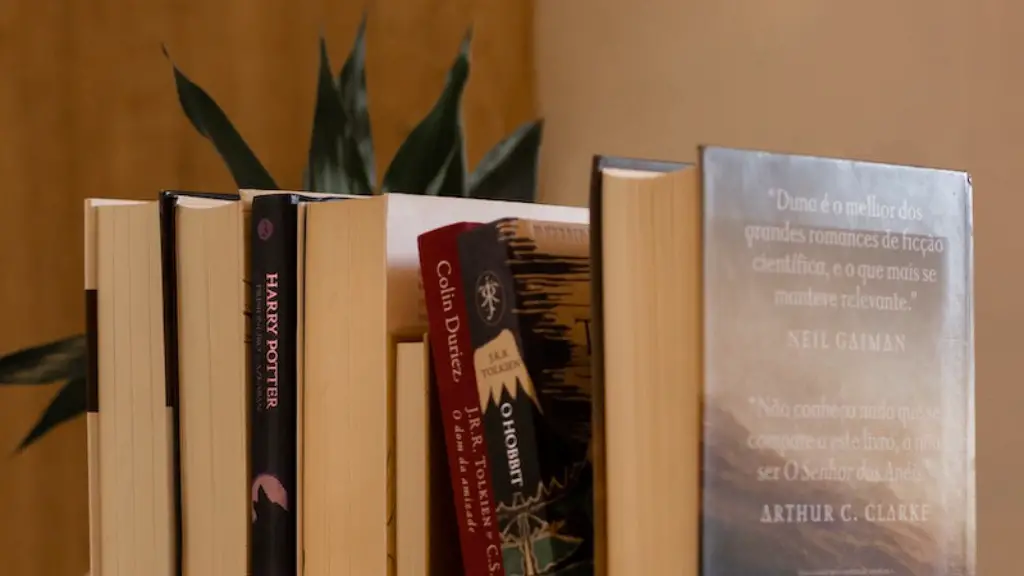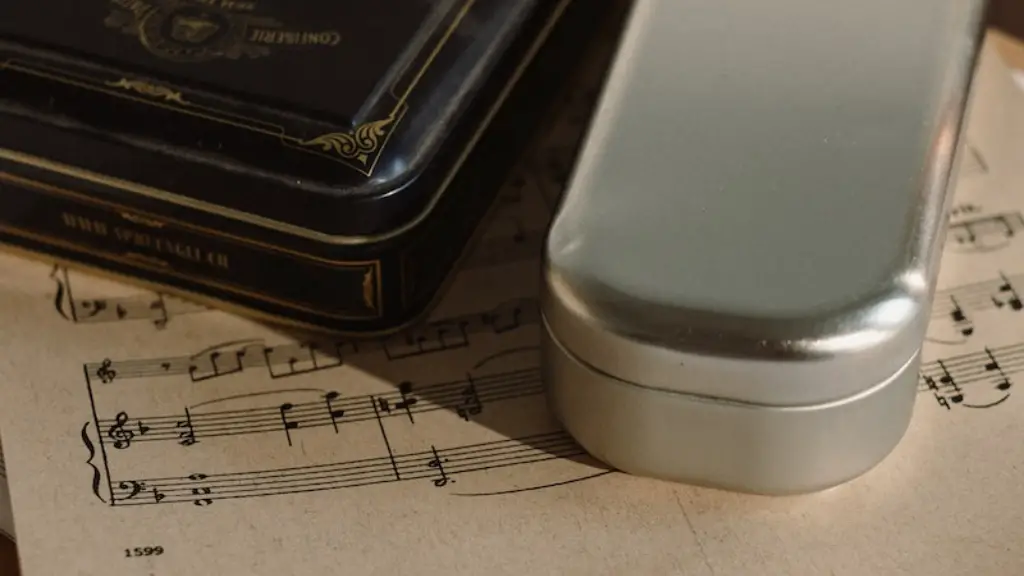Metaphor is a technique often found in poetry, which presents an idea or a concept by comparison to something that is unrelated. A metaphor draws a comparison between two objects, ideas, concepts, or characteristics that may be completely unrelated, yet have a relatable point of similarity. Metaphor can portray an idea in a more vivid and emotive way, as it grabs the reader’s attention and engages them in an imaginative and creative way. It is a powerful tool which adds an extra layer of meaning to the words it is used on, making it much more powerful than the original concept.
Metaphors are often used to enhance imagery and create an atmosphere in poetry. It is a powerful tool which can both explain and explore language, ideas, and abstractions. By using metaphor in a poem, it can convey its central message or ideas in a far more effective way than simply stating the facts. This makes metaphors an indispensible tool in the poetic arts. An example of metaphor being used in poetry is Robert Frost’s famous poem, ‘The Road Not Taken. The poem features the famous lines, ‘Two roads diverged in a yellow wood’, which is an obvious metaphor for life’s choices.
It has been theorized that metaphors express a deeper, more personal level of meaning. These metaphors can help to express feelings and emotions which can’t be expressed in simple language. It helps to evoke a powerful response from the reader by offering them insight into a greater, underlying meaning. For example, in William Wordsworth’s ‘The World is Too Much With Us’, the poem starts with the metaphor ‘the world is too much with us’ to represent the disconnect with nature that the poet is feeling.
Metaphor is often used in poetry to express a deeper, more meaningful understanding of life and its complexities. It is used to describe feelings and experiences in ways that no other language can match, which makes it a valuable tool for poets. Metaphor can be used to explore themes and ideas which would otherwise be difficult to comprehend and express. This can help to provide readers with a deeper understanding of the poem, which can help them to engage with it in a more meaningful and emotional way.
Metaphor is a valuable tool for poets. It can be used to both enhance imagery and convey deeper levels of meaning. It can also help to create an atmosphere in the poem, making it more engaging and emotive. By using metaphor in a poem, a poet can explore themes and ideas, and convey deeper and more powerful meanings. Metaphor is an essential tool in any poet’s arsenal.
What Metaphor Accomplishes in Poetry
Metaphor can do many things for a poem. Metaphor can be used to reveal a deeper, more meaningful understanding of life and its complexities. It can help to express feelings and experiences that cannot be articulated in a simple language. It can also help create an atmosphere in the poem, giving it an added emotional depth. Finally, Metaphor can be used to explore themes and ideas, allowing the poet to express a deeper, more meaningful understanding of their work. All of these things help to draw the reader in, creating an emotional connection between the poet, the poem, and the reader.
The Different Types of Metaphor
There are several different types of metaphor which can be used in poetry. These include extended metaphor, which is when a metaphor is drawn out across many lines of text, and implied metaphor, where the metaphor is suggested but not explicitly stated. There is also the conceit, where a writer creates an extended analogy between two relatively unrelated things in order to draw a comparison. Finally, there are the implied and mixed metaphors, which are when the author combines two or more metaphors in order to create a more complex image.
Understanding Metaphor in Poetry
When reading poetry, it can be helpful to understand how a metaphor works in order to get the most out of the poem. To do this, readers must be able to pick up on the clues left by the poet, and use them to infer the meaning of the metaphor itself. By doing this, readers can gain a deeper insight into the meaning of the poem, and can engage more fully with the emotions and ideas expressed by the poet.
The Effect of Metaphor on Interpretation
The use of metaphor in poetry can significantly alter the interpretation of a poem. By using metaphor, the poet is able to express a much deeper, more meaningful idea than they would be able to without it. This can have a profound effect on the way a poem is interpreted, as it can bring out emotions and ideas which would have otherwise gone unnoticed. As a result, metaphor can be a very powerful tool for a poet, and can make a huge difference to how the poem is received by its audience.
How to Effectively Incorporate Metaphor in Poetry
To effectively incorporate metaphor in poetry, poets must understand how to use the technique appropriately. They must understand the different types of metaphor available, and how to use them to convey the intended message. They must also be aware of how metaphor can affect the interpretation of their poem, and use it in a way that brings out the desired emotion and meaning. By understanding how to use metaphor in the right way, poets can make the most of the technique and improve the quality of their writing.
Why Metaphor is an Important Poetic Device
Metaphor is an invaluable tool when it comes to writing poetry. It can help to bring out emotions and ideas which would otherwise go unnoticed. It can also add an extra layer of meaning to a poem, which allows the poet to express their ideas in a far more effective way. By using metaphor appropriately, poets can engage their readers in a more creative and meaningful way, allowing them to get the most out of their work.
Conclusion
Metaphor is an essential tool for any poet. By understanding the different types of metaphor available, the effects it can have on a poem’s interpretation, and how to effectively incorporate it into their writing, poets can make the most of the tool and improve the quality of their work. Metaphor has the potential to make a poem much more powerful and emotive, and can help to make a poem more meaningful and engaging for its readers.



